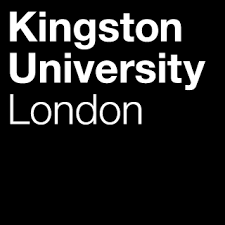Clinical Reasoning in Health Assessment: Lifespan Perspectives

09 Sep 2025 (Intake closed)
Apply by: 26 Aug 2025
*The advertised teaching dates are provisional, and subject to change*
09 Sep 2025 (On Campus), 10 Sep 2025 (Online), 16 Sep 2025 (Online), 23 Sep 2025 (Skills day), 24 Sep 2025 (Skills day), 30 Sep 2025 (Online), 07 Oct 2025 (Online), 14 Oct 2025 (Skills day), 21 Oct 2025 (Skills day), 22 Oct 2025 (Skills day)
04 Nov 2025 (Intake closed)
Apply by: 21 Oct 2025
*The advertised teaching dates are provisional, and subject to change*
04 Nov 2025 (On Campus), 05 Nov 2025 (Online), 11 Nov 2025 (Online), 18 Nov 2025 (Skills day), 19 Nov 2025 (Skills day), 26 Nov 2025 (Online), 02 Dec 2025 (Online), 09 Dec 2025 (Skills day), 16 Dec 2025 (Skills day), 17 Dec 2025 (Skills day)
10 Feb 2026 (Intake closed)
Apply by: 27 Jan 2026
*The advertised teaching dates are provisional, and subject to change*
10 Feb 2026 (On Campus), 11 Feb 2026 (Online), 17 Feb 2026 (Online), 24 Feb 2026 (Skills day), 25 Feb 2026 (Skills day), 03 Mar 2026 (Online), 10 Mar 2026 (Skills day), 24 Mar 2026 (Online), 25 Mar 2026 (Skills day), 31 Mar 2026 (Skills day)
14 Apr 2026 (Available)
Apply by: 31 Mar 2026
*The advertised teaching dates are provisional, and subject to change*
14 Apr 2026 (On Campus), 15 Apr 2026 (Online), 21 Apr 2026 (Online), 28 Apr 2026 (Skills day), 29 Apr 2026 (Skills day), 05 May 2026 (Online), 12 May 2026 (Online), 19 May 2026 (Skills day), 26 May 2026 (Skills day), 27 May 2026 (Skills day)
Course overview
*The advertised teaching dates are provisional, and subject to change*
This module will enable nurses, midwives and other registered healthcare practitioners to develop their knowledge and skills in clinical reasoning and physical examination techniques. Healthcare practitioners are provided with the opportunity to equip themselves to deliver a high standard of care in health assessment techniques, critically explore differential diagnosis and develop management plans that are evidence based and in partnership with their client group. The emphasis of the module is on integrating subjective and objective data into the clinical reasoning process and on synthesis of evidential practice in the context of undifferentiated urgent care. The educational delivery and ethos of this module emphasises and builds on autonomous self-directed learning for independent practice.
Aims
The aims of the module are to:
- prepare for a role where patient assessment across the age range is robustly and safely linked to clinical reasoning as a fundamental skill in healthcare provision;
- establish and develop an extensive knowledge base enabling the health and social care professional to negotiate safe, effective and personalised care management plans;
- enhance communication strategies between patients and health care professionals to provide a continuum of shared care;
- maximise inter-professional collaborative working for the provision of quality healthcare.
Course length: 10 Teaching Days
Assessment
Case Study (2000 words) and Objective Structured Clinical Examinations (OSCEs).
This module can contribute to the following programme(s)
UPISP1ISP67: GradCert Independent / Supplementary Prescribing for Nurses and Midwives
Accredited by




Learning Outcomes
Demonstrate the knowledge and skills to perform and interpret a comprehensive history taking and physical examination, that is patient-centred, and takes responsibility and accountability for clinical decisions when dealing with differentiated and undifferentiated diagnoses.
Critically apply an in-depth understanding of physiological and patho-physiological processes to inform health assessments and evaluate management plans in partnership with service-users, families and carers.
Communicate an understanding of relevant diagnostic and investigative tests required for diagnosis and health reviews with a critical view of the emotional and financial implications to individuals and healthcare services.
Critically discuss and take responsibility for the legal, ethical and professional issues in relation to scope of practice and multi-disciplinary working when making autonomous decisions
Utilise empirical, expert and experiential knowledge forms to underpin decisions that address the physical, psychological, personal, social, economical and ethical factors that impact on individuals, families and communities.
Apply a range of communication and technological strategies to empower individuals, families, carers and the wider community to make positive, sustainable changes that improve overall health and quality of life.

Course details
Course leader
Alex Murrell & Michael Canete
Administrator
Course delivery
Blended Learning. On-Campus sessions subject to change. If government advice changes, we may need to update our plans. If we do so, we will update this information, and will keep current students and offer holders informed by email.
Downloads
Prerequisites
Access to a minimum of 50 hours supervised clinical practice.
Funding
£2,345.00
Self-funding students will need to make a one-off payment for the module via our secure payment portal before the online enrolment process.

Make an enquiry
Make an enquiry
